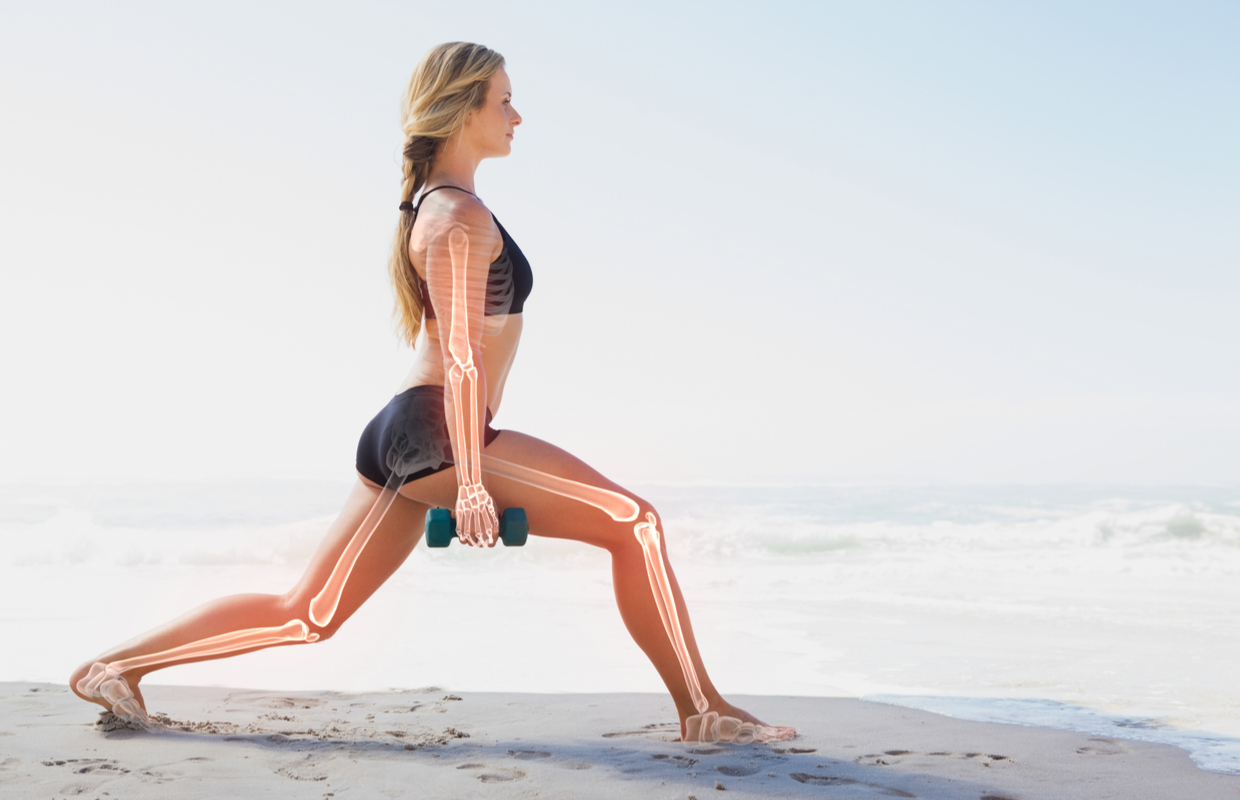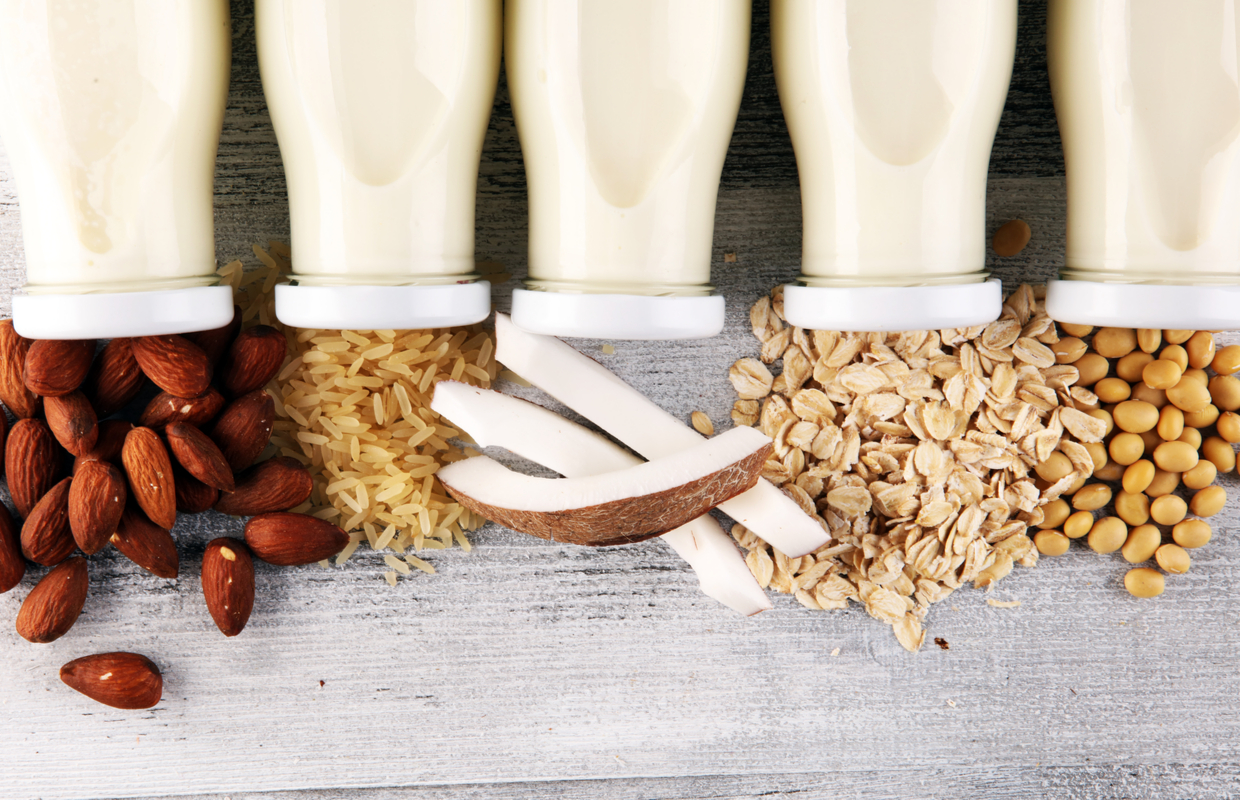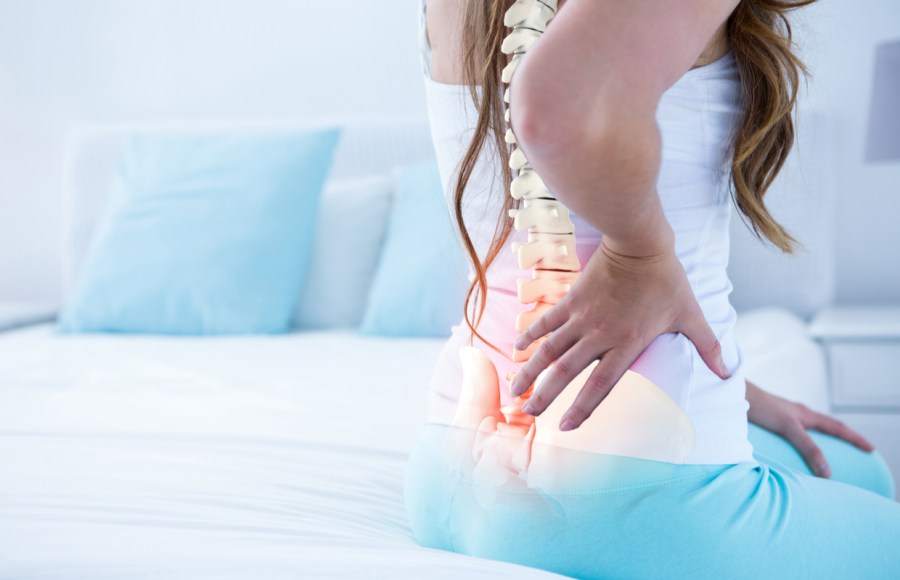How does menopause affect your bone health? Nutritional therapist Susie Debice takes a look at how and why menopause can cause a loss in bone density, before exploring the best ways to keep your bones strong and prevent osteoporosis – during and after the menopause…
According to the NHS, three million people in the UK are thought to have osteoporosis, a condition commonly associated with post-menopausal women. Your bone tissue is constantly changing and reforming. This bone renewal process involves two types of cells: osteoclasts, which clear out old, brittle bone, and osteoblasts, which form new bone material. As you get older, this bone renewal process becomes less efficient and bones become thin, brittle and fragile. But how does the menopause increase the risk of poor bone density and osteoporosis – and how can you prevent bone loss?
How are bones affected during menopause?
The effect of menopause on the bones largely comes down to hormones, namely oestrogen and progesterone, which regulate the monthly cycle. These have a huge impact on maintaining strong, healthy bones. Oestrogen stimulates the osteoclast bone cells to clear out old bone and progesterone tasks osteoblasts to build new bone. Together, these two hormones help oversee bone health during your fertile years.
However, in the build up to menopause, oestrogen and progesterone levels start to decline, and after menopause – classified as 12 months after your last period – levels of both hormones are very low. This leaves post-menopausal women at a much higher risk of having poor bone density and experiencing fractures.

How to strengthen bones and prevent osteoporosis during and after menopause
There are many ways to strengthen your bones during menopause and beyond, from upping your vitamin intake to cutting down on animal products…
Up your intake of vitamins and minerals for bone health
We’ve all heard about how important calcium is for bones, but this mineral does not work alone. Building new bone and maintaining bone health during and after menopause is a team effort involving collagen, magnesium, zinc, boron, silicon, phosphorus, trace minerals and the vitamins C, D and K.
Vitamin C and silicon help build and maintain the complex collagen network in which minerals are deposited. Vitamin D and K assist the absorption of calcium in the gut and help regulate calcium levels in your bloodstream. The mineral magnesium works with vitamin D to escort calcium into the bone matrix where it teams up with other equally important minerals including zinc, magnesium, boron, phosphorus, manganese, and trace minerals. Boron also reduces the urinary excretion of calcium, which helps activate vitamin D.
Avoid disrupting your body’s pH balance
Your bones provide you with more than just a structural framework. They also provide the body with a reserve of alkaline minerals used to maintain pH balance. Your body works hard to make sure the pH of your blood and the fluid inside and outside your cells remains just slightly alkaline.
Quite a task considering factors such as stress, alcohol, poor diet, sugar, fizzy drinks and metabolic waste products tend to add an acidic load. Your body counterbalances this acid influx by leaching alkaline minerals from your bones to recalibrate back to the preferred alkaline status. Being too acidic for too long literally dissolves the minerals in your bones!
Switch to plant-based proteins during and after menopause
One of the most significant, yet less well-known risk factors for the development of osteoporosis is excessive protein consumption. Protein-rich foods tend to be acid forming. So, as you get older and go through the menopause, it’s important to start thinking about how to obtain dietary protein in a way that doesn’t put your bone health at risk.
Animal protein sources such as eggs, meat, fish and dairy tend to be very acid-forming However, plant-based forms of protein have less of an impact on pH balance. In fact, a study published in The American Journal of Clinical Nutrition reported that post-menopausal women who ate a high ratio of animal protein to vegetable protein had more bone loss and a fourfold greater risk of fracture than women who had a low ratio of animal to plant protein.

Try plant milks to prevent osteoporosis during menopause
One of the first things to consider is how much dairy you consume a day. Many people are misguided into thinking that drinking milk is good for bone health, when it is anything but. Yes, dairy foods do contain calcium. However, they are also highly acid forming. We now know this could be far more destructive in terms of your bone health. Switching cow’s milk to plant milk is a great step towards cutting back on acid-forming foods.
Protect your bones by making your diet more alkaline
The best way to make your diet more alkaline is simply to include more alkaline-forming foods, i.e. fruit and vegetables. It’s green leafy vegetables that have the most alkalising effect on the body. Spinach, kale, chard, cabbage and broccoli are all great choices. Aim to have at least three servings of greens a day.
You could also supplement with wheat grass or barley grass powder, or blue green algae, such as spirulina or chlorella. You should probably take these in capsule form as the powders, particularly the blue-green ones, have a very strong flavour!
Words: Susie Debice | Images: Shutterstock







